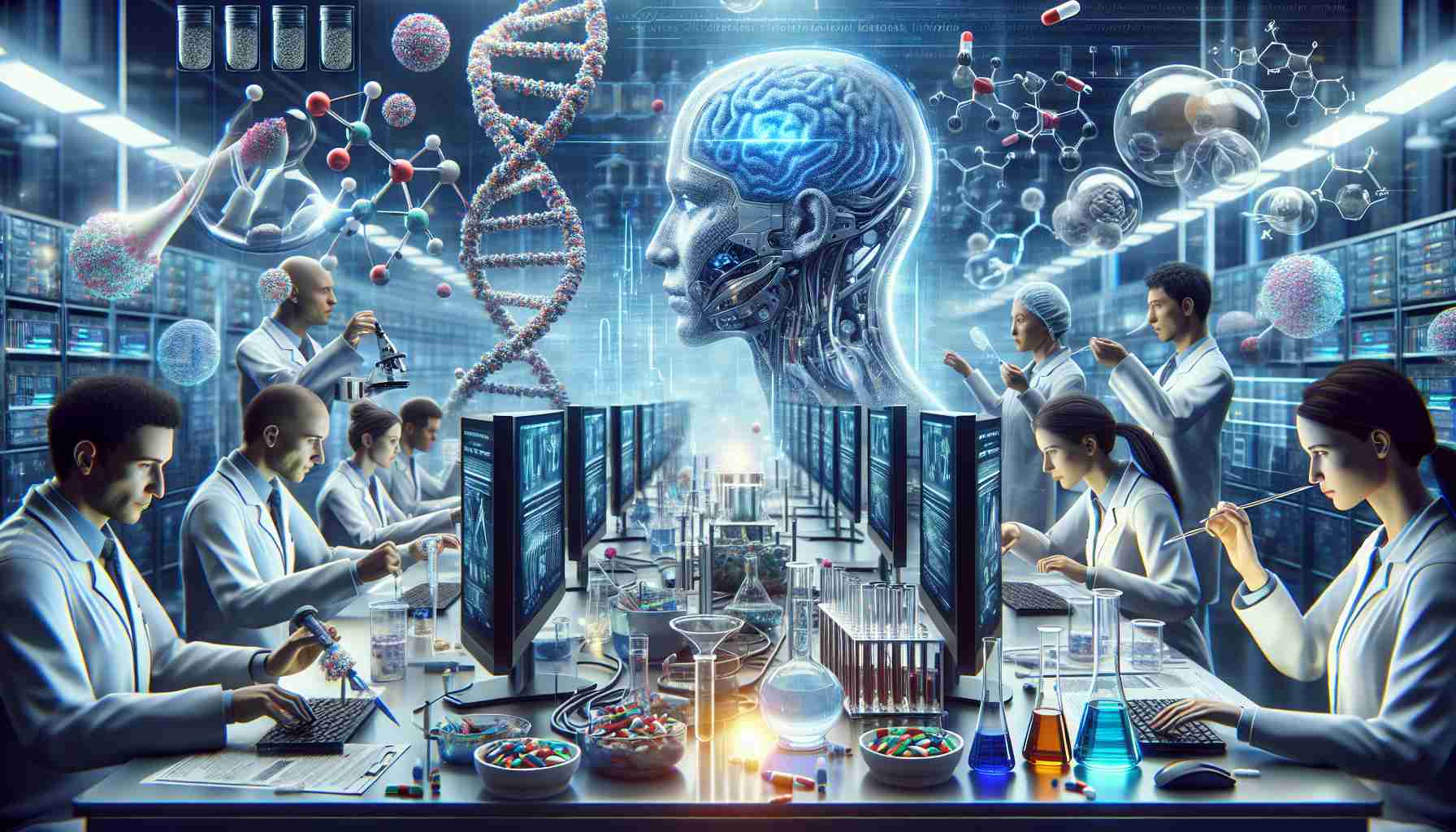Artificial Intelligence (AI) has been making remarkable strides within the domain of biomedical research, particularly in the field of structural biology. The Google DeepMind’s AlphaFold program has exemplified the enormous potential AI holds for scientific progress. Back in 2016, it became evident with the success of AI system AlphaGo that mastering complex rule-based systems could lead to unprecedented advancements.
AlphaFold has been engineered to predict protein structures based on amino acid sequences. Such predictions are vital because protein structures determine their functions and interactions, which are foundational to all life processes. This groundbreaking achievement of AlphaFold presents a quantum leap beyond decades of human endeavor to simulate these intricate molecular transformations.
The utility of AlphaFold’s accomplishments cannot be overstressed. Understanding the three-dimensional structures of proteins informs drug development efforts globally. Most pharmaceutical programs are fundamentally concerned with identifying molecules that interact with proteins in beneficial ways—either stimulating or inhibiting their action.
The emergence of AlphaFold has revolutionized the field of structural biology. Prior to AlphaFold, structural biologists spent over fifty years producing several hundred thousand protein structures through nuclear magnetic resonance and X-ray crystallography. Now, AlphaFold, along with its competitors, has provided detailed predictions of protein shapes, numbering in the millions, vastly expanding the database of protein structures.
Dr. Chris Gibson at Recursion Pharmaceuticals reinforces that while not all AlphaFold predictions are flawless, they are invaluable hypotheses that stimulate experimental validation, and the model continues to improve rapidly.
AI systems are trained to discern vast patterns across extensive datasets. This capability generates new hypotheses for biological implications of human diseases. AI is not just about fresh insights; it is also instrumental in repurposing old drugs, anticipating new drug side effects, and identifying patient populations that would benefit or be harmed by new treatments.
AI’s computational ambitions have been around since the 2000s, according to Vijay Pande, a former Stanford researcher. The turn of the century witnessed surges in biological discoveries, necessitating the development of ‘knowledge graphs’ to interpret the wealth of biomedical research publications smoothly.
The journey of AI in the biomedical field has been progressive. In 2020, BenevolentAI leveraged AI to evaluate Baricitinib’s potential for treating COVID-19. More recently, AI algorithms have expedited the search for long COVID biomarkers. As the databases grow and AI models become more sophisticated, they will push the boundaries of biomedical research even further.
Key Questions and Answers:
Q: What specific tasks within drug development are being transformed by AI?
A: AI is transforming various tasks in drug development, including target identification, lead optimization, prediction of drug activity and toxicity, repurposing existing drugs for new indications, and identifying patient subgroups likely to benefit from or harmed by specific treatments.
Q: What are some challenges facing the integration of AI in biomedicine?
A: Major challenges include ensuring the quality and diversity of the training data, validating the AI predictions with experimental data, overcoming data privacy and ethical issues, integrating AI tools in the traditional drug discovery processes, and addressing skepticism among biomedical experts.
Q: Are there controversies associated with the use of AI in drug development?
A: Controversies could involve the potential for reduced transparency in decision-making with AI “black-box” algorithms, possible biases reflecting the data the AI was trained on, concerns over intellectual property and data sharing, and the threat of job displacement in certain skilled sectors.
Advantages and Disadvantages:
Advantages:
– Rapid in silico prediction of protein structures, accelerating hypothesis generation.
– Increased efficiency in identifying promising drug candidates and repurposing existing drugs.
– Potential for personalized medicine approaches through AI algorithm predictions.
– Reduction in time and costs associated with drug discovery and development.
Disadvantages:
– Not all AI predictions are accurate, requiring extensive experimental validation.
– Potential for over-reliance on AI, leading to diminished traditional scientific inquiry.
– Ethical concerns over AI decision-making processes and patient data usage.
– Potential displacement of jobs with the increasing automation of research tasks.
Given the topic’s profound implications for the future of healthcare and medicine, one may explore further by visiting the main websites of key AI biomedical companies and institutions that have made considerable progress in the field, such as:
– DeepMind – The AI lab behind AlphaFold.
– Recursion Pharmaceuticals – A biotech company utilizing AI in drug discovery.
– BenevolentAI – An AI company that worked on Baricitinib for COVID-19 treatment.
Exploring these links can provide further insights into ongoing developments and real-world applications of AI in revolutionizing drug development and biomedicine.

